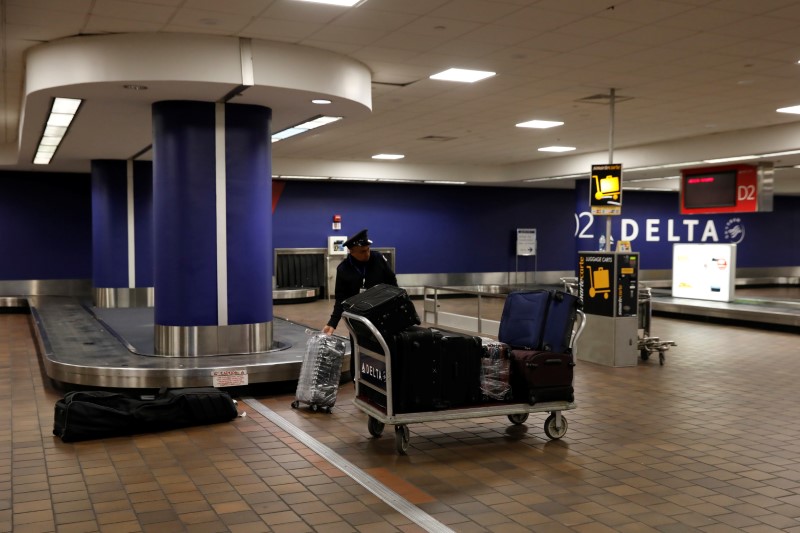
By David Shepardson and Diane Bartz
WASHINGTON (Reuters) -The Biden administration will soon propose new rules to require passenger airlines to refund fees for bags that are significantly delayed and refunds for services like onboard Wi-Fi that does not work, a source told Reuters.
Under existing Transportation Department rules, passengers are entitled to a fee refund if bags are lost, but not when delayed. Under the proposed Transportation Department rule to be released in the coming days, a “significantly delayed checked bag” is one not delivered to the passenger within 12 hours for domestic itineraries and within 25 hours for international itineraries.
Airlines for America, a group representing major airlines, did not immediately comment on Friday.
The administration proposal would also require airlines to promptly refund fees – such as for advance seat selection, Wi-Fi and other flight services – if the passenger does not receive the service or it does not work.
Under a forthcoming executive order on competition, President Joe Biden is directing the Transportation Department “to engage in a series of rulemakings to protect airline passengers and to promote fair competition in the airline industry,” the source told Reuters.
U.S. airlines collected approximately $5.8 billion in baggage fees and $2.8 billion in change and cancellation fees in 2019, up from just $464 million in baggage fees and $915 million in change and cancellation fees in 2007.
The Transportation Department also intends to issue a separate proposed rule in the coming months to require upfront disclosure of baggage fees, change fees and cancellation fees at the time of purchase of a plane ticket.
The Biden administration is holding a call on Friday to discuss the issue with major airlines, two other sources said.
Biden’s executive order will also direct the department to consider the fee disclosure rule, the source said, saying it would help consumers avoid being surprised by ticket fees and allow more accurate comparison shopping for flights.
Reuters first reported the planned executive order earlier this week.
(Reporting by David Shepardson in Truro, Mass.; writing by Diane Bartz in Washington; Editing by Dan Grebler)



